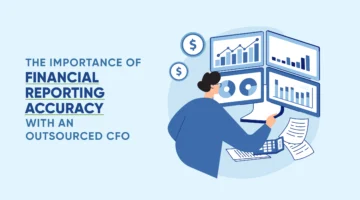The Strategic Evolution: Finance’s Integral Role in ESG and Beyond
In an era where corporate success is intricately woven with Environmental Responsibility, Social Consciousness, and Ethical Governance (ESG), the role of finance has transcended traditional boundaries. According to a 2022 study conducted by asset management firm Capital Group, a significant majority, comprising 63% of investors, opt to employ active funds to incorporate ESG considerations. Environmental, Social, and Governance (ESG) reporting is not just a trend but a fundamental shift that is reshaping the business world.
The Finance Transformation: ESG as the New Business Imperative
The integration of ESG considerations into financial decisions is essential for staying competitive, attracting investors, and ensuring long-term viability. As financial experts have a direct impact on allocation, risk management, and strategic planning, they now bear a significant responsibility in advancing ESG objectives. From capitalizing on renewable energy investments to evaluating supply chain ethics, the financial lens has expanded to incorporate broader social and environmental considerations.
The Strategic Dimensions of Sustainable Finance
- Environmental Sustainability: Sustainable finance demands a meticulous examination of environmental impact. Allocating resources to renewable energy projects, eco-friendly technologies, and energy-efficient practices not only reflects the commitment to environmental preservation but also aligns with changing consumer expectations and governmental regulations.
- Social Responsibility: The finance function now extends its reach to encompass social dimensions. Ethical employee treatment, diversity and inclusion initiatives, and community engagement efforts are factors that directly influence a company’s financial success. Such considerations strengthen relationships with stakeholders and foster brand loyalty.
- Effective Governance: Ethical governance is the cornerstone of sustainable finance. Finance professionals are now responsible for ensuring that decision-making processes prioritize transparency, accountability, and ethical conduct. These practices not only enhance a company’s reputation but also mitigate financial risks associated with legal violations and regulatory non-compliance.
Adapting to Evolving Market Demands
- Incorporating ESG Metrics: Modern finance professionals must master the art of incorporating ESG metrics into financial analysis. These metrics offer a holistic view of a company’s value proposition, risk profile, and long-term viability. By considering ESG data, finance teams can better anticipate market trends and make informed investment decisions.
- Strategic Resource Allocation: Finance experts play a pivotal role in channeling financial resources toward sustainable initiatives. By aligning budgets and investment strategies with ESG goals, companies can drive meaningful impact while securing long-term financial success.
- Risk Management and Reporting: Financial experts need to identify and assess ESG-related risks that may impact the bottom line. Through thorough risk assessment and transparent reporting, companies can safeguard their financial stability and demonstrate their commitment to sustainable practices.
The Outsourced Financial Expertise Advantage
In the complex realm of ESG reporting and sustainable financial practices, partnering with an outsourced financial/accounting firm provides a strategic edge. These experts bring specialized knowledge, staying up-to-date with evolving regulations and industry best practices. The benefits extend beyond ESG.
- Data Mastery: Outsourced firms possess the proficiency to collect, analyze, and interpret ESG data, enabling informed decision-making and comprehensive reporting.
- Strategic Advisory: Collaborating with experts empowers your company with strategic insights that align ESG initiatives with financial goals, ensuring a synergistic approach.
- Regulatory Compliance: Outsourced firms ensure adherence to ever-changing regulations, mitigating legal risks and enhancing a company’s reputation.
Pioneering the Sustainable Future
As the influence of ESG expands beyond Corporate Social Responsibility departments, the role of finance has evolved into a strategic driver of sustainable business practices. Financial experts are uniquely positioned to guide companies toward meaningful ESG integration, fostering environmental preservation, social impact, and ethical governance. The benefits transcend monetary gains; embracing sustainable finance establishes a reputation as an ethical and forward-thinking entity. The integration of ESG into financial strategies isn’t just a strategic move-it’s an essential step in securing a resilient and prosperous future in an ever-evolving global landscape.



